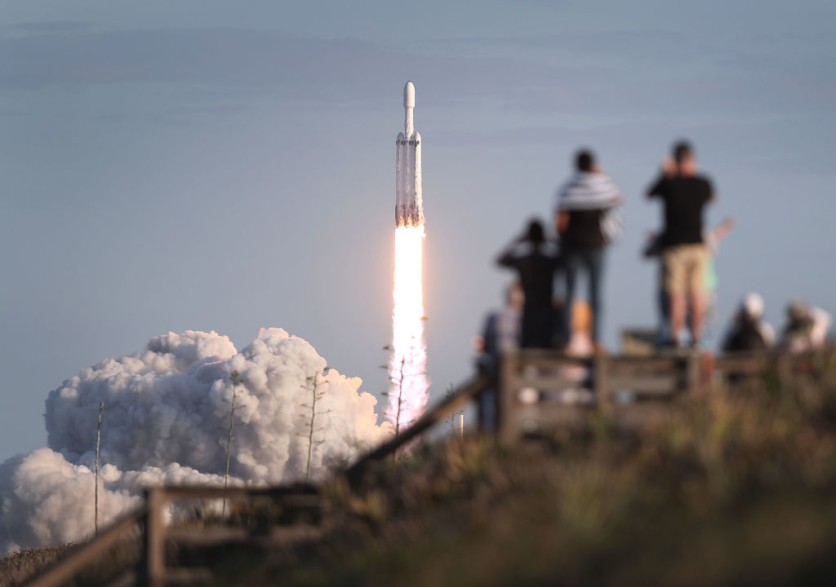Iran has launched two nano-satellites and a research satellite onboard the Simorgh rocket at the Imam Khomeini Spaceport in Iran's rural Semnan province, as the Los Angeles Times reported, citing the Associated Press as their source. The satellite launch comes amidst the rising tensions between Israel and the group Hamas.
A separate report stated that the launch happened on Sunday, wherein the satellites were launched into a minimum 450-kilometer orbit. The Simorgh satellite carrier rocket launched one 32-kilogram satellite and two less than 10 kg nano-satellites.

The nano-satellites, Kayhan-2 and Hatef-1, would reportedly be utilized to test geopositioning and narrowband communication technologies. The larger satellite, Mahda, will reportedly be used to evaluate how accurate the Simorgh rocket is in delivering numerous payloads into space. The successful launch follows after reportedly having several failures with the Simorgh rocket.
This launch is reportedly a part of Iran's civilian and Revolutionary Guards space programs, a program the US has previously criticized as it could quicken the country's ballistic missile development.
Problematic Satellite Launch
The Islamic Republic of Iran halted its space program under the comparatively moderate previous president, Hassan Rouhani, out of concern over escalating hostilities with the West. But in the interim, the nuclear agreement that Rouhani negotiated with major international powers in 2015 has fallen apart, and tensions with the United States have been high for years.
Protégé of Supreme Leader Ayatollah Ali Khamenei, hard-line President Ebrahim Raisi took office in 2021 and has advanced the initiative. In the meantime, Iran continues to enrich uranium to levels nearing weapons-grade and sufficient for many atomic bombs, despite assessments by U.S. intelligence agencies and others that Tehran has not started actively pursuing a nuclear weapon.
The launch also coincides with rising tensions in the Middle East as a result of Israel's ongoing bombardment on the Gaza Strip, raising concerns of possible regional warfare.
Wests' Criticisms Surrounding Iran
The US also reportedly stated that Iran's satellite launches violate a U.N. resolution passed by the Security Council and demanded that Tehran refrain from using ballistic missiles that are equipped to deliver nuclear weapons.
On Sunday, the US military did not reply to queries for comment. Nevertheless, it has tacitly accepted that the launch on January 20 by the nation's paramilitary Revolutionary Guard was effective. According to the State Department, it was informed of the satellite launch reports.
According to reports, the government claimed that Iran's space launch vehicle projects offer a chance for the country to develop its longer-range missile capabilities. The department also stated that it is consistently working with partners and allies to stop Iran's ballistic missile program's continued growth by utilizing a range of nonproliferation capabilities.
The US is not the only one criticizing Iran's satellite launches, as Europe has previously expressed its worries that Iran could use its satellites to create long-range ballistic missiles. Iran rejected the rebuke on Saturday, claiming it was entitled to peaceful scientific growth in the aerospace industry.
Related Article : New US Navy Cyber Strategy Emphasizes Stealthy 'Non-Kinetic Effects' in Future Warfare

ⓒ 2025 TECHTIMES.com All rights reserved. Do not reproduce without permission.




